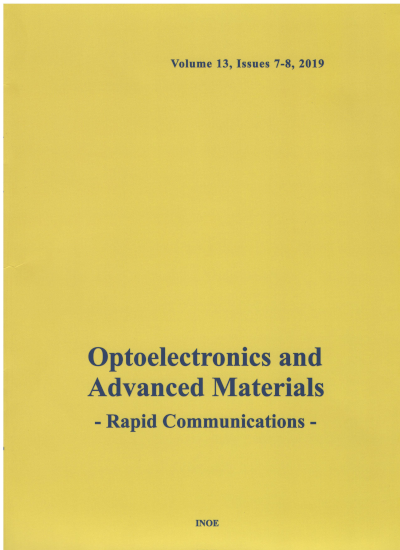Abstract
The paper investigates ecological glasses prepared from non-toxic raw materials. These glasses have compositions
belonging to the quaternary oxide systems: SiO2-R'2O-R''O-R'''O2, where R' is Na or K, R'' is Ca or Mg and R''' is Zr or Ti.
The present work aims to replace barium and lead oxides by potassium, magnesium, zirconium and titanium oxides, in
order to use such materials as lead free crystals and for other applications. Some of the characteristic temperatures, such
as: vitreous transition point, low and high annealing points, softening point and also the thermal expansion coefficient
between 20 and 320oC are measured. FTIR and Raman spectroscopy provide interesting structural information. The
characteristic vibration modes for silicon and titanium oxide are discussed. The vitreous network forming role of zirconium
oxide is put in evidence. The refraction index calculation and UV-VIS transmission diagrams are presented and discussed.
Keywords
Ecological glass, Lead free glass, FTIR, Raman, UV-VIS.
Citation
B. A. SAVA, A. DIACONU, L.-D. URSU, M. ELISA, I. STAMATIN, F. NASTASE, C. NASTASE, Structure of ecological lead free silicate glasses, Optoelectronics and Advanced Materials - Rapid Communications, 3, 5, May 2009, pp.435-438 (2009).
Submitted at: March 10, 2008
Accepted at: May 25, 2009
